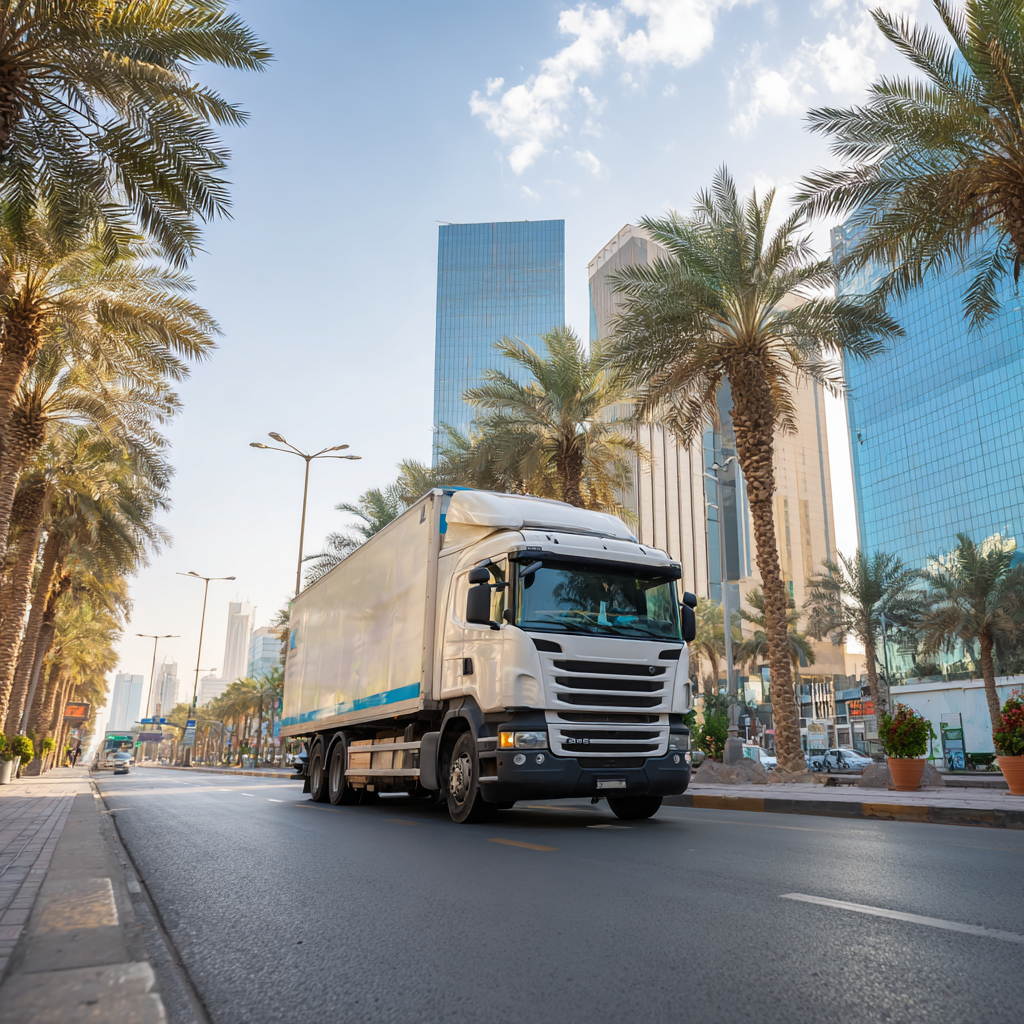The Future of FMCG Distribution in Saudi Arabia

Saudi Arabia’s Fast-Moving Consumer Goods (FMCG) sector stands at the threshold of unprecedented transformation. As the Kingdom advances toward its ambitious Vision 2030 goals, the distribution landscape for consumer goods is evolving rapidly to meet changing consumer demands, technological advancements, and regulatory shifts. For FMCG companies operating in Saudi Arabia, understanding these emerging trends is not just beneficial—it’s essential for sustainable growth and competitive advantage.
The Impact of Vision 2030 on FMCG Distribution
Vision 2030, launched in 2016 under the leadership of Crown Prince Mohammed bin Salman, represents Saudi Arabia’s bold plan to diversify its economy away from oil dependency. This transformative initiative is reshaping the FMCG distribution sector in several significant ways:
Economic Diversification and Market Expansion
The push to reduce oil dependency has opened new avenues for growth in the consumer goods sector. With government investments in infrastructure, tourism, and entertainment, FMCG companies are experiencing increased demand across diverse product categories. This economic diversification is creating more robust and resilient distribution channels throughout the Kingdom.
Regulatory Reforms and Market Access
Vision 2030 has ushered in business-friendly policies and regulatory reforms that streamline distribution operations. The removal of barriers to market entry, simplified licensing procedures, and modernized customs processes are making it easier for FMCG companies to establish and expand their distribution networks across Saudi Arabia.
Infrastructure Development
Massive investments in transportation networks, logistics hubs, and smart city projects are revolutionizing FMCG distribution capabilities. Projects like NEOM and the Red Sea Development are creating new distribution nodes, while improved road networks are enhancing last-mile delivery efficiency.
Digital Transformation of Distribution Networks
The digital revolution is fundamentally changing how FMCG products reach consumers in Saudi Arabia:
E-Commerce and Omnichannel Distribution
The rapid growth of e-commerce platforms and delivery apps is reshaping traditional distribution models. By 2030, digital channels are expected to dominate FMCG transactions, requiring companies to develop robust omnichannel distribution strategies that seamlessly integrate online and offline experiences.
AI and Data Analytics in Supply Chain Management
Advanced analytics and artificial intelligence are optimizing inventory management, demand forecasting, and route planning. FMCG distributors are increasingly leveraging these technologies to reduce costs, minimize stockouts, and improve delivery speed.
Blockchain for Transparency and Traceability
Blockchain technology is enhancing supply chain transparency, allowing consumers to trace products from manufacturer to store shelf. This technology is particularly valuable for premium and health-conscious product categories where authenticity and source verification are crucial purchasing factors.
Evolving Consumer Landscape and Distribution Implications
Saudi Arabia’s changing demographics and consumer preferences are directly influencing distribution strategies:
Health-Conscious Consumers Driving Product Portfolio Evolution
There’s a clear shift toward health-focused products, with rising demand for organic, clean-label, low-sugar, and functional foods. Distribution networks must adapt to accommodate these specialized product categories, often requiring temperature-controlled transport and storage facilities.
Premium and Experience-Driven Products
As disposable incomes rise, Saudi consumers are increasingly willing to pay a premium for high-quality, unique products. This trend is pushing distributors to handle more specialized, premium product lines and develop enhanced capabilities for preserving product integrity throughout the supply chain.
Sustainability Demands
Environmental consciousness is growing among Saudi consumers, creating expectations for sustainable distribution practices. FMCG companies are responding by reducing packaging waste, optimizing delivery routes to minimize carbon emissions, and exploring alternative fuels for their distribution fleets.
The Rise of Local Brands and Distribution Opportunities
Vision 2030’s emphasis on local production and entrepreneurship is fostering the growth of homegrown FMCG brands:
Local Manufacturing Expansion
Government initiatives supporting local manufacturing are increasing the presence of domestically produced FMCG products. This shift is creating opportunities for more efficient distribution networks with shorter supply chains and reduced lead times.
Export Readiness of Saudi Brands
Saudi FMCG brands are increasingly looking beyond domestic markets, with ambitions to export regionally and globally. Distribution partners with international capabilities and cross-border expertise are becoming valuable allies for these expanding brands.
Future-Ready Distribution Strategies
To thrive in Saudi Arabia’s evolving FMCG landscape, companies should consider these strategic priorities:
Invest in Technology Integration
Successful distributors will be those who leverage technology across their operations—from warehouse management systems and route optimization software to predictive analytics and customer relationship management tools.
Develop Agile and Responsive Networks
The ability to rapidly scale distribution capabilities up or down in response to market changes will be crucial. Flexible warehousing solutions, on-demand delivery options, and adaptable workforce management will characterize successful distribution networks.
Build Last-Mile Excellence
As consumer expectations for rapid delivery grow, mastering the last mile will become a critical competitive advantage. Innovative solutions like micro-fulfillment centers, dark stores, and autonomous delivery vehicles will play increasingly important roles.
Focus on Talent Development
The human element remains essential in distribution. Investing in developing a digitally savvy workforce with strong analytical skills and customer-centric mindsets will be key to operational excellence.
The future of FMCG distribution in Saudi Arabia is being shaped by the intersection of Vision 2030 initiatives, technological advancements, and evolving consumer preferences. Companies that embrace these changes—investing in digital capabilities, adapting to new consumer demands, and aligning with sustainability goals—will be well-positioned to thrive in this dynamic market.
As Saudi Arabia continues its journey toward becoming a diversified, knowledge-based economy, the FMCG distribution sector stands to play a crucial role in connecting manufacturers with an increasingly sophisticated consumer base. By anticipating and preparing for the trends outlined in this article, FMCG companies can ensure they remain at the forefront of this exciting transformation.

At Relia, we combine deep market insight, a powerful distribution network, and tailored strategies to help FMCG brands thrive. Ready to take your brand to the next level?

